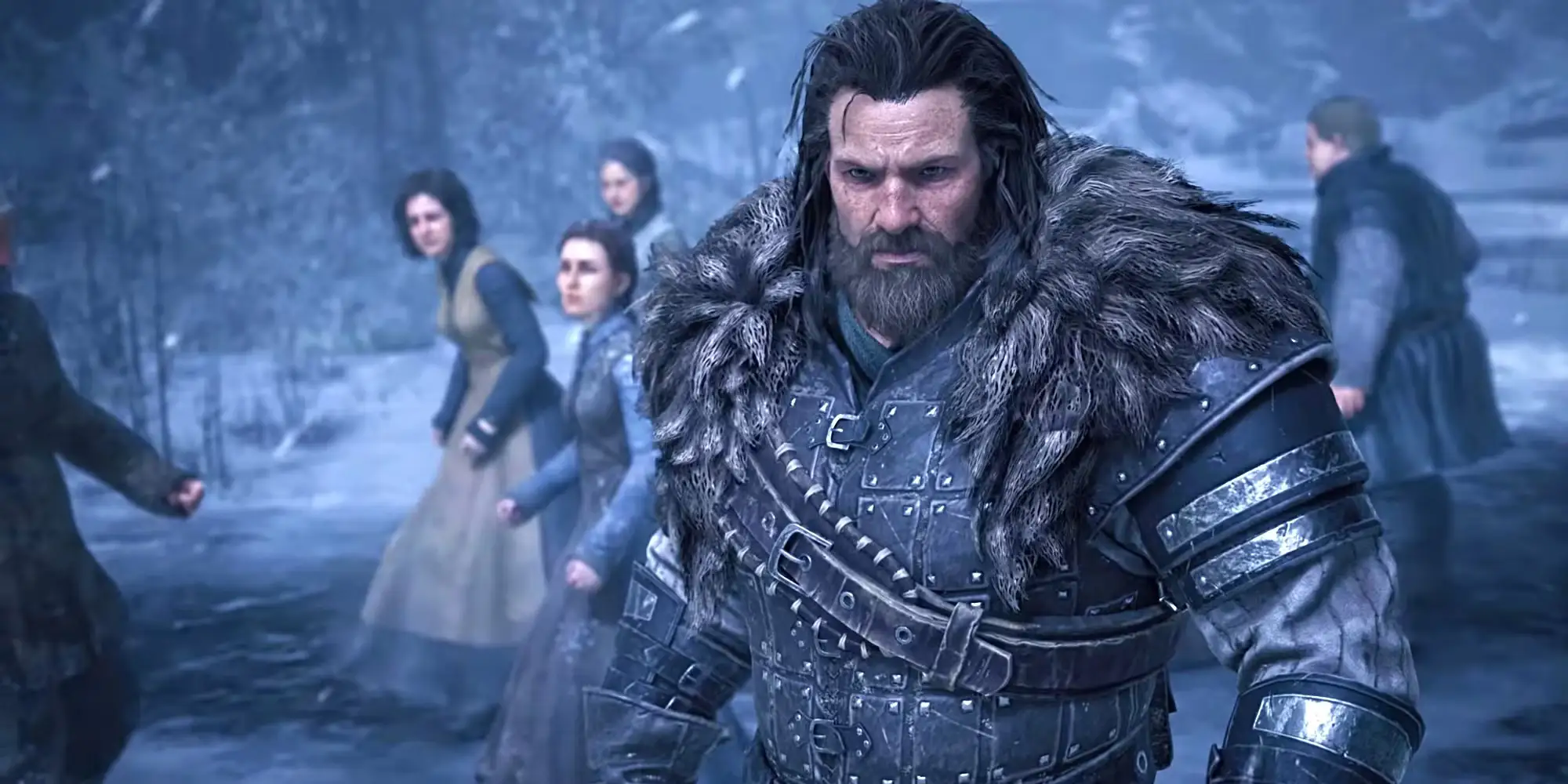Game of Thrones: Kingsroad is a mobile-oriented open-world RPG developed by Netmarble, drawing from the intense and treacherous lore of the Game of Thrones universe. Framed within the events of the show’s fourth season, the game introduces players to a world defined by political ambitions, legendary creatures, and shifting alliances. In this Early Access phase, players are immersed in a story centered on a quest for influence, beginning with a bastardy and culminating in a struggle for leadership. The experience, while rich in concept, quickly reveals a concerning reliance on in-game purchases, threatening to overshadow the core narrative.
A New Heir in Westeros
Players assume the role of a bastard and the only surviving descendant of House Tyre. With the family’s lord weakened, the protagonist is tasked with winning over allies across Westeros to overturn their illegitimate status and claim their rightful position as leader. Throughout the campaign, iconic characters from the HBO series emerge to help or hinder progress. Appearances from Jon Snow and Samwell Tarly offer familiarity, while the presence of antagonists such as Roose and Ramsay Bolton inject tension into the storyline. Even though the narrative begins amid a complex point in the timeline, the game simplifies entry by delivering a brief and effective tutorial. This opening moment brings players beyond the Wall and introduces themes of dynastic rivalry and the looming White Walker threat.
Defining Combat Style
Early in the game, players must decide on a character archetype, which significantly influences their approach to combat. There are three roles available: the Knight, which balances strength and agility using a sword; the Sellsword, a powerhouse wielding an axe; and the Assassin, who relies on speed and stealth with daggers. Choosing the Sellsword—a class influenced by characters such as Tormund and Brienne of Tarth—offers an aggressive and crowd-control oriented playstyle. For those interested in experimenting with different tactics, the game allows additional class creation through the main menu, enabling loot sharing across classes. However, each character must individually replay the story, though shared gear provides a meaningful advantage in early sections.
Crafting a Distinct Hero
Kingsroad presents a robust character customization system, with an impressive array of options. Players can adjust individual facial features using sliders, manipulate beard length and color, and apply scars for a battle-worn look. There’s also control over hair texture and shine. While not quite as deep as customization tools found in other RPGs like Dragon’s Dogma 2 or inZOI, it still allows for enough flexibility to give players a strong sense of ownership over their in-game persona.
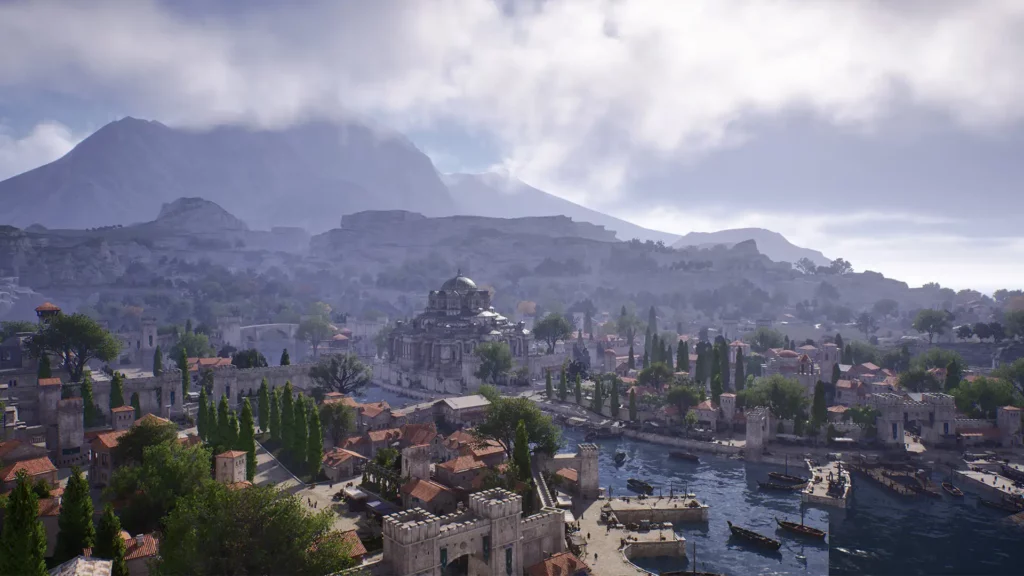
Exploring a Digital Westeros
Visually, Kingsroad makes a solid first impression. The recreated environments, including the Wall and Winterfell, feel authentic to the series and encourage exploration. However, the initial visual allure doesn’t last. Prolonged time in a single region exposes flaws: grass flickers unnaturally, repeating assets become noticeable, and the overall illusion of immersion begins to falter. NPCs also detract from the experience with their unnatural animations. Some resemble stiff paintings, while others move like animatronic figures, following players with lifeless gazes. These oddities are most pronounced during dialogue scenes, where unsettling facial movements disrupt otherwise grounded exchanges.
Slippery Controls Hamper Navigation
Movement, both on foot and while mounted, feels disconnected from the terrain. Characters often glide as though skating on ice, regardless of whether the surface is snow or dirt. The sluggish responsiveness of the controls introduces problems in narrow paths and during combat. Attempting to maneuver through tight or twisty areas often results in unwanted slips or mistimed engagements. In one recurring issue, players can unintentionally launch themselves down hills into enemy territory, with limited capacity to recover positioning quickly. What initially seems humorous soon grows frustrating.
Predictable and Repetitive Combat
Combat encounters across Westeros lack meaningful variation. Whether confronting a minor enemy or a major boss, players face a consistent formula: dodge incoming attacks, retaliate with light or heavy strikes, and occasionally use a special move. Enemy designs are reused frequently, with the primary difference being the number encountered at once. Occasionally, a mission may require separating enemies or adopting a more strategic stance, but these instances are infrequent. Most of the time, success in battle depends on enduring waves of foes with recycled attack routines.
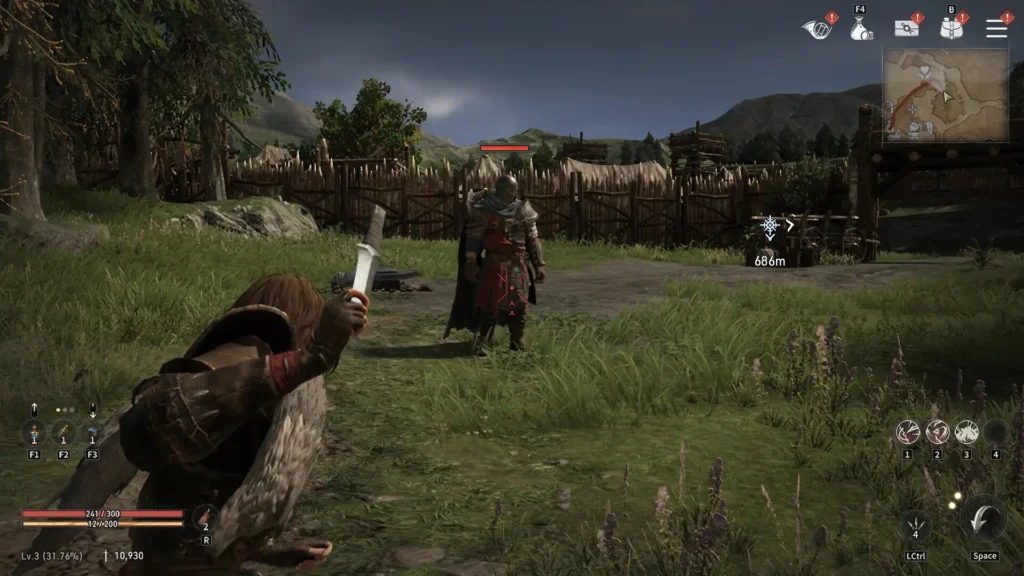
Emotional Weight Undermined by Gameplay
Despite mechanical shortcomings, Kingsroad attempts to inject emotion into its missions. Quests involving missing children or villages under siege are designed to evoke a response. Unfortunately, the repetitive nature of combat and the grind-centric progression system drain these story moments of their potential impact. Upgrade paths exist to enhance the range of combat abilities, and while there’s hope that these options will diversify future encounters, the current iteration of battles lacks energy or surprise.
Hidden Challenges Amidst the Grind
Among the highlights of exploration are platforming puzzles spread across the open map. These segments offer a welcome break from combat. Scanning tools help locate hidden entrances, treasure chests, and story-related secrets concealed in ruins or cliffs. When wandering through remote areas and uncovering these secrets, Kingsroad briefly feels like a lightweight version of Assassin’s Creed Valhalla. The user interface and gameplay loop echo Ubisoft’s Viking adventure, from mission structure to visual cues. However, at times, this resemblance crosses into territory that feels derivative rather than inspired.
Locked Progress Through Momentum
The game’s open-world exploration is gated behind a system called Momentum. Similar to Gear Score from other RPGs, this metric calculates a character’s strength based on stats, gear, and abilities. Accessing new regions depends on meeting certain Momentum thresholds. Initially, this system presents a fair challenge. However, as early mission rewards taper off, the real purpose of Momentum becomes clear—it acts as a mechanism to slow progress and nudge players toward microtransactions. What begins as a pacing tool transforms into a monetization trap.
Monetization Is Embedded in Every Layer
Kingsroad’s commitment to in-game purchases becomes more apparent the longer one plays. Beyond the familiar battle pass and in-game currencies, almost every aspect of progression has a monetized shortcut. Players are offered the choice to pay when dying in battle to avoid respawning with fewer items. Fast travel can be executed through a limited number of signposts or unlocked globally by paying. Even small time-saving features are frequently positioned behind paywalls.
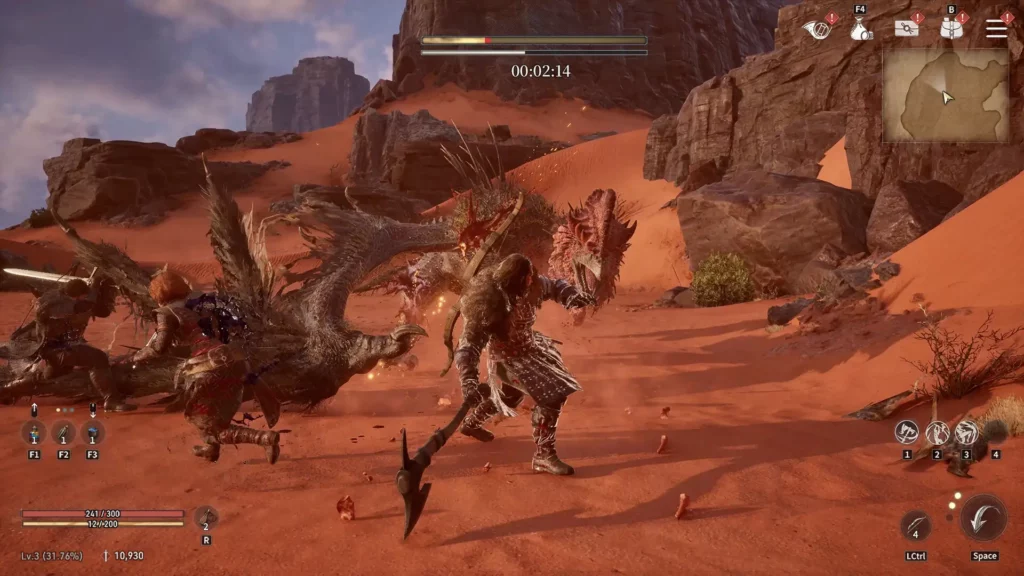
These mechanics impact gameplay efficiency directly. The more a player pays, the faster they can reach required Momentum levels and unlock story content. While some optional monetization is expected in free-to-play titles, the overwhelming number of pay-to-win elements here creates an environment where paying customers enjoy distinct mechanical advantages.
The Thin Line Between Frustration and Engagement
There’s a pervasive sense that the game is designed to frustrate just enough to provoke spending. Instead of enriching gameplay, microtransactions often replace it. While spending isn’t mandatory, refusal to do so means enduring significant downtime or excessive grinding. What should be an immersive journey through Westeros becomes a calculated decision tree of time versus money. Every design choice—from item replenishment to map navigation—seems shaped by the potential for revenue rather than player experience.
Beauty Beneath the Transaction Model
Despite these issues, Kingsroad still manages to deliver glimpses of magic. Traversing the world on the back of a dire wolf through frost-covered landscapes delivers cinematic beauty—particularly if players avoid lingering long enough to catch visual flaws. The narrative threads of the quests are written to reflect the sorrow and tragedy that permeate the original series. But every time immersion starts to build, it is shattered by another prompt asking for payment or encouraging players to upgrade something with premium currency.
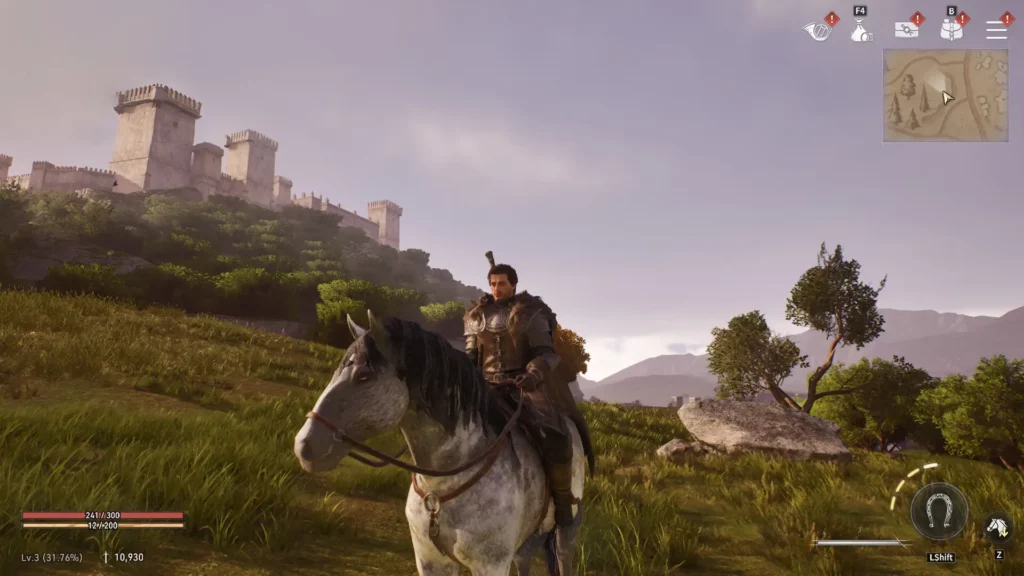
Potential Yet to Be Unlocked
At over 20 hours in, it’s clear that Kingsroad is expansive. Systems such as artifact discovery, talent trees, and estate customization are hinted at but not yet fully explored. These mechanics could eventually add depth and variety to the experience. However, the current balance between core gameplay and monetization suggests a future where each of these systems may also be locked behind time sinks or payment requirements. Until the full version arrives, uncertainty remains about whether these features will elevate the experience or reinforce existing frustrations.
Conclusion: A Kingdom Bought or Earned?
Game of Thrones: Kingsroad sits at a crossroads. On one hand, it presents a detailed, lore-rich world that draws on one of the most beloved fantasy franchises. On the other, it is weighed down by a monetization system that permeates every meaningful aspect of progression. While emotional storytelling, strong character customization, and large-scale exploration offer reasons to remain hopeful, the game’s underlying structure repeatedly undermines its potential. Unless the final release meaningfully addresses these imbalances, Kingsroad may remain a game that asks players to choose: invest time, or open their wallets.
